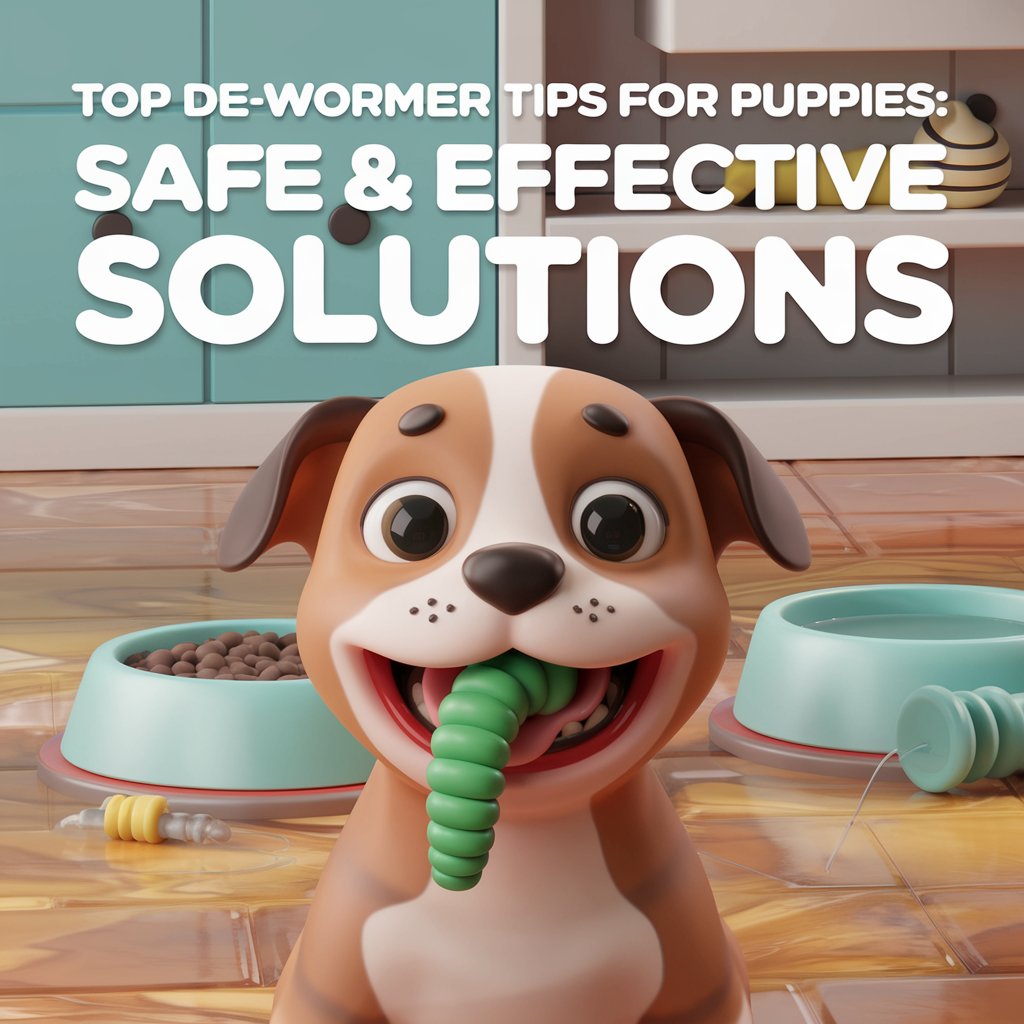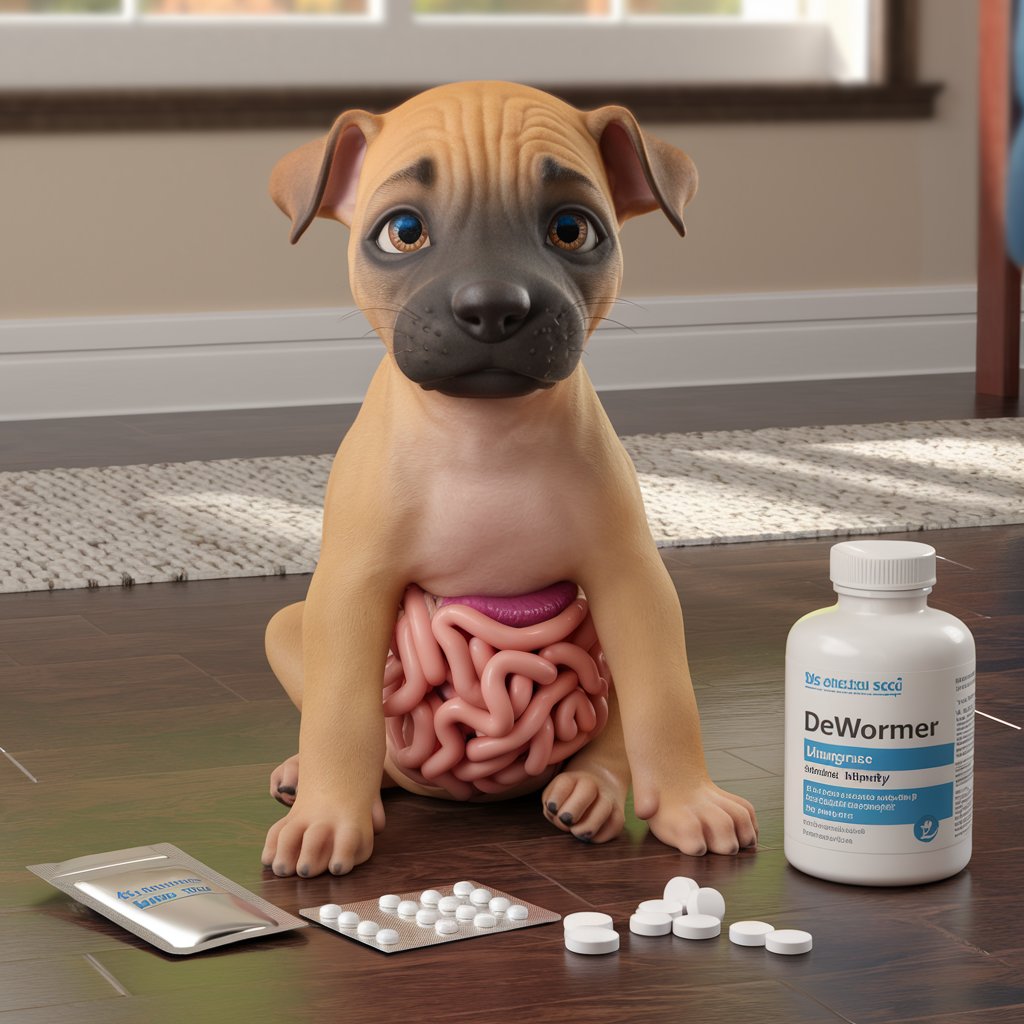Why De-Worming Your Puppy Is a Must
Raising a puppy is like living with a fluffy ball of joy that occasionally makes messes. Among the many tasks you’ll face as a new dog parent, de-worming might not sound like the most glamorous, but it’s one of the most crucial. Worms are sneaky little creatures that can wreak havoc on your puppy’s health if left unchecked. In this guide, we’ll dive into everything you need to know about de-worming, from understanding why it’s important to recognizing the signs of worm infestations and choosing the right de-wormer for your furry friend.
The Importance of De-Worming Puppies
Your puppy is an explorer, sniffing and chewing everything in sight, and unfortunately, that often includes worm eggs and larvae. Worms can enter your puppy’s system through contaminated soil, mother’s milk, or even fleas. Left untreated, these parasites can cause a range of issues, from mild discomfort to severe health problems, such as malnutrition, anemia, and even death in extreme cases. Regular de-worming ensures your puppy stays healthy, happy, and ready to chase those tails!
What Worms Are We Talking About?
Before we get into the nitty-gritty of de-worming, let’s get acquainted with the usual suspects:
- Roundworms: These are the most common type, resembling spaghetti noodles. Puppies can get them from their mother before birth or through her milk.
- Hookworms: These little nasties attach to the puppy’s intestines and suck blood, leading to anemia. They’re contracted through skin contact or ingestion of contaminated matter.
- Tapeworms: Often spread by fleas, tapeworms are segmented parasites that latch onto the intestines. You might spot rice-like segments in your puppy’s stool.
- Whipworms: These are more common in adult dogs but can affect puppies, causing weight loss and diarrhea.
- Heartworms: Transmitted by mosquitoes, heartworms are the most dangerous and can be fatal. Although de-wormers for intestinal worms don’t treat heartworms, it’s important to be aware of them.
Recognizing the Signs of Worm Infestation
Puppies can’t tell you when something’s wrong, so it’s up to you to be their health detective. Here are some telltale signs that your puppy might be hosting unwanted guests:
- Potbellied appearance: A swollen belly is often a sign of a roundworm infestation.
- Diarrhea and vomiting: Persistent digestive issues can indicate worms.
- Visible worms: If you see worms or worm segments in your puppy’s stool or vomit, it’s time to take action.
- Lethargy: Worms can sap your puppy’s energy, making them unusually tired or weak.
- Weight loss: Despite eating well, a worm-infested puppy may lose weight due to the parasites consuming nutrients.
- Dull coat: A healthy puppy has a shiny coat, so a dull, dry coat can be a sign of internal parasites.
- Scooting: While it’s more commonly associated with anal gland issues, scooting can also indicate the presence of tapeworms.

Choosing the Right De-Wormer for Your Puppy
With a plethora of de-worming products on the market, choosing the right one can be daunting. Here’s a breakdown of the options to help you make the best choice for your pup:
Over-the-Counter (OTC) De-Wormers
OTC de-wormers are convenient and effective for treating most common types of worms.
- Pyrantel Pamoate: A widely used de-wormer that’s effective against roundworms and hookworms. It’s safe for young puppies and is often found in liquid form, making it easy to administer.
- Fenbendazole: This broad-spectrum de-wormer targets roundworms, hookworms, whipworms, and some tapeworms. It’s available in granules, paste, and liquid form.
- Praziquantel: Specifically effective against tapeworms, this is often used in combination with other de-wormers for comprehensive treatment.
- Ivermectin: While commonly used for heartworm prevention, ivermectin can also treat certain types of intestinal worms. However, it should be used with caution, especially in certain breeds sensitive to it.
Prescription De-Wormers
For severe infestations or specific types of worms, your vet might prescribe a stronger de-wormer.
- Milbemycin Oxime: This de-wormer treats roundworms, hookworms, whipworms, and also prevents heartworm. It’s often combined with other medications in chewable tablets.
- Moxidectin: Effective against roundworms, hookworms, and whipworms, and also serves as a heartworm preventive.
- Emodepside: A newer de-wormer that targets roundworms, hookworms, and certain types of tapeworms.
Administering De-Wormers: Making It a Fun Experience
Giving your puppy medication might seem like a challenge, but it doesn’t have to be. Here are some tips to make the process easier for both of you:
- Hide it in food: Most puppies won’t notice a pill or liquid in their favorite treat. Peanut butter and cheese work wonders.
- Use a pill pocket: These tasty treats are designed to hold pills, making them easy to swallow.
- Make it a game: Turn de-worming into a fun activity. Reward your puppy with praise and playtime afterward.
- Stay calm: Puppies can sense your anxiety. Approach the task confidently, and your puppy is more likely to cooperate.
Preventing Worm Infestations
De-worming is only part of the solution. Preventing future infestations is equally important.
Keep Your Puppy’s Environment Clean
- Pick up poop promptly: Worm eggs are spread through feces, so keeping your yard clean reduces the risk.
- Wash bedding regularly: Worm eggs can survive in fabric, so make sure to wash your puppy’s bedding often.
- Avoid contaminated areas: Steer clear of areas where other dogs frequent, especially if you suspect they’re not de-wormed.
Regular Vet Check-Ups
- Fecal exams: Regular stool tests help detect worms before they become a serious problem.
- Weight checks: Monitoring your puppy’s weight can help catch any issues early, including worm infestations.
Flea Control
- Use flea preventives: Since fleas can carry tapeworms, keeping your puppy flea-free is crucial.
- Regular grooming: Brushing your puppy’s coat helps spot fleas early.

When to Consult Your Vet
While most de-worming can be handled at home, there are times when a vet’s intervention is necessary:
- Persistent symptoms: If your puppy continues to show signs of worms after de-worming, consult your vet.
- Severe infestations: Heavy worm loads can cause serious complications and require professional treatment.
- Unusual behavior: Any sudden change in your puppy’s behavior or health warrants a trip to the vet.
Conclusion: Worm-Free and Happy
Keeping your puppy worm-free is essential for their overall health and well-being. By following these de-wormer tips for puppies, you’ll ensure that your furry friend grows up strong, healthy, and ready to fill your life with joy. De-worming doesn’t have to be a chore—make it a routine part of your puppy care regimen, and soon it’ll be as natural as those belly rubs they love so much!












Discussion about this post